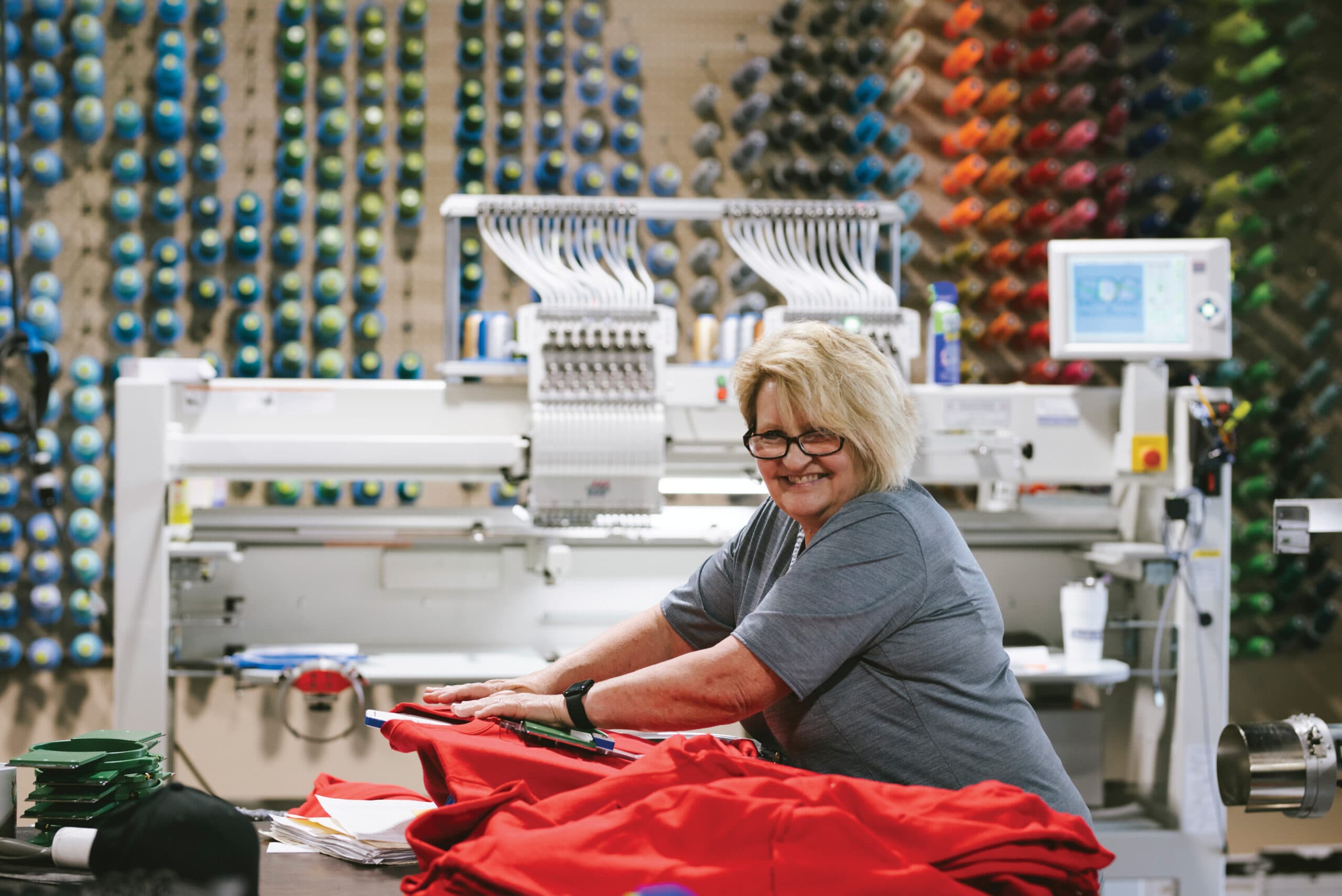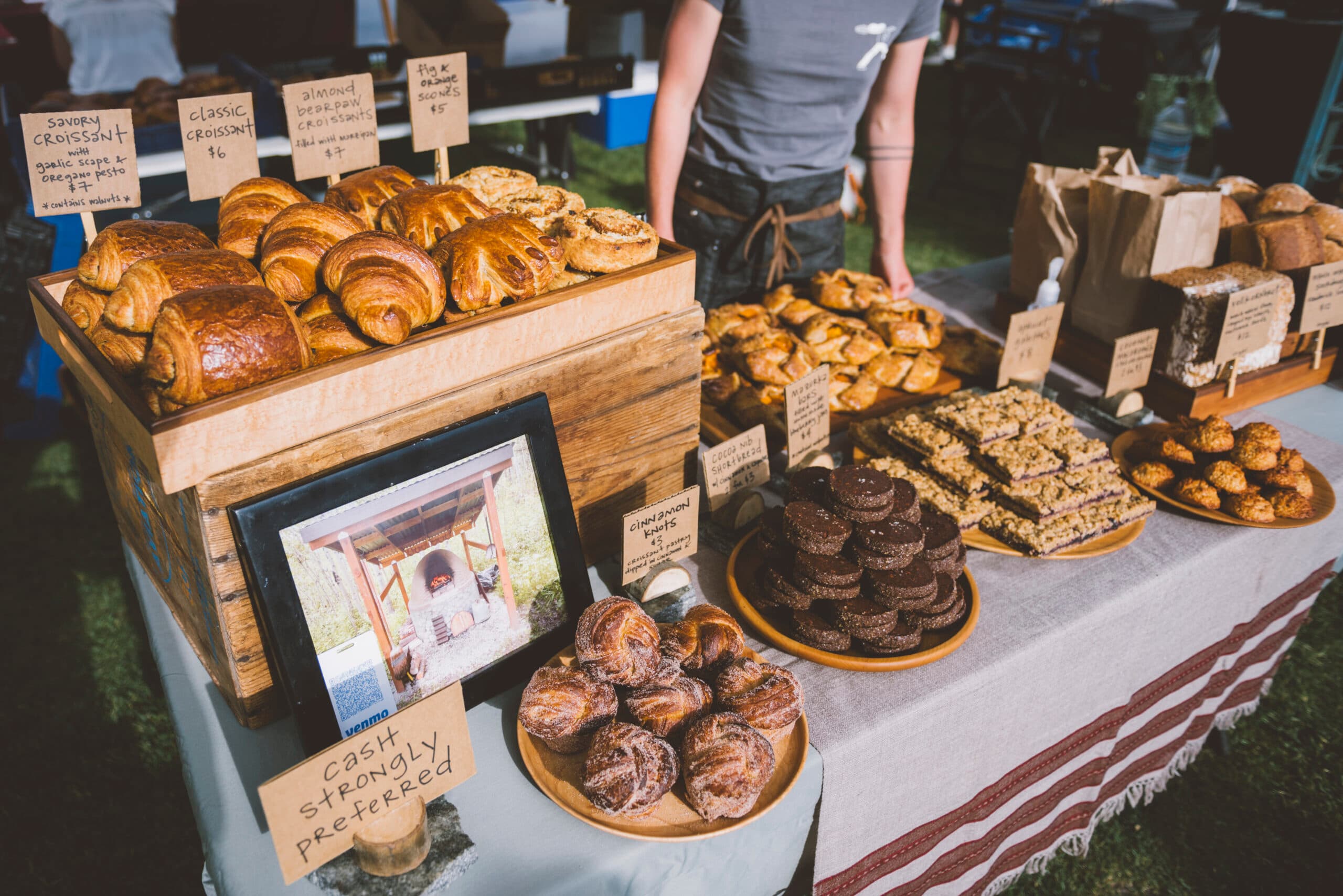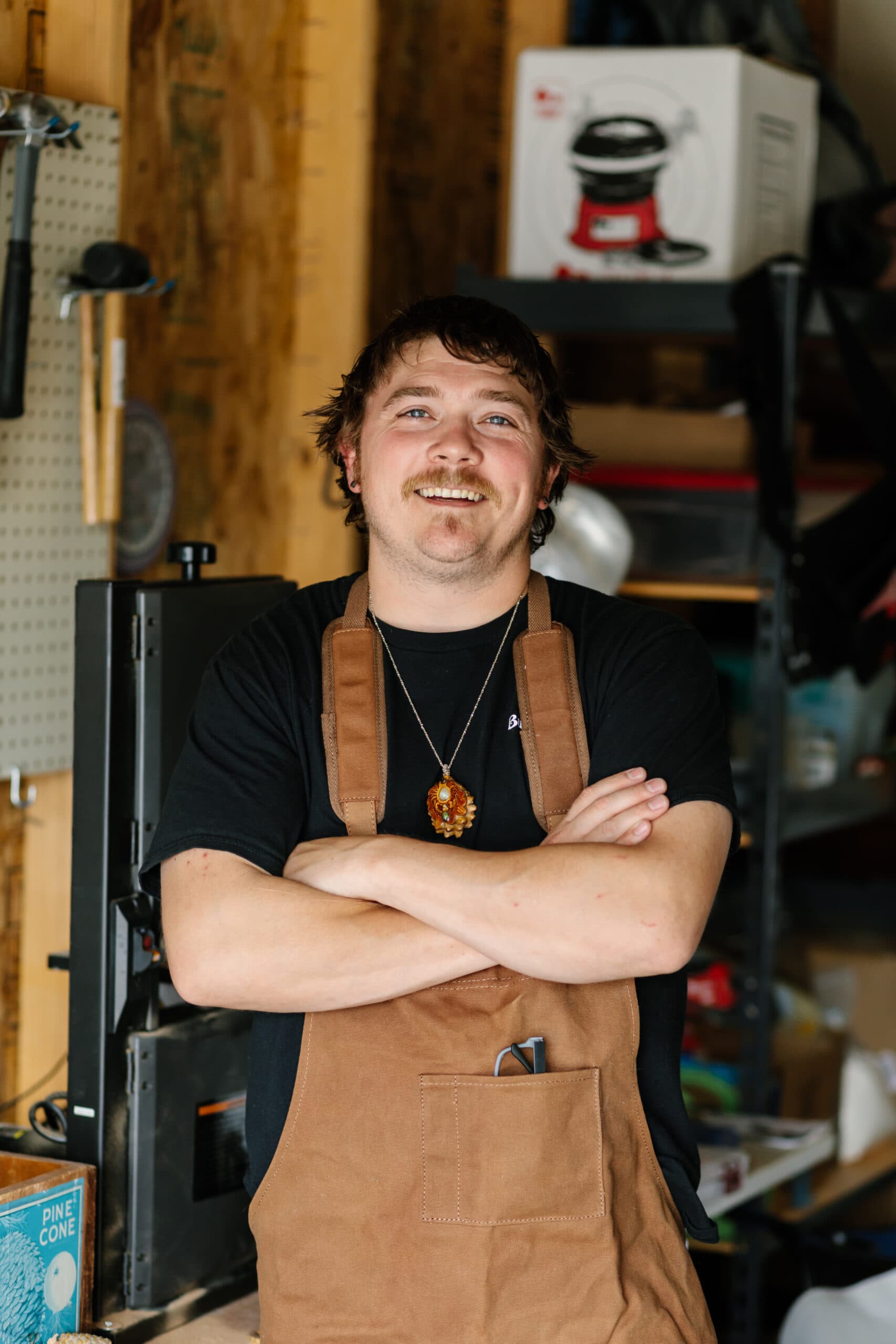Darkhorse for the Win
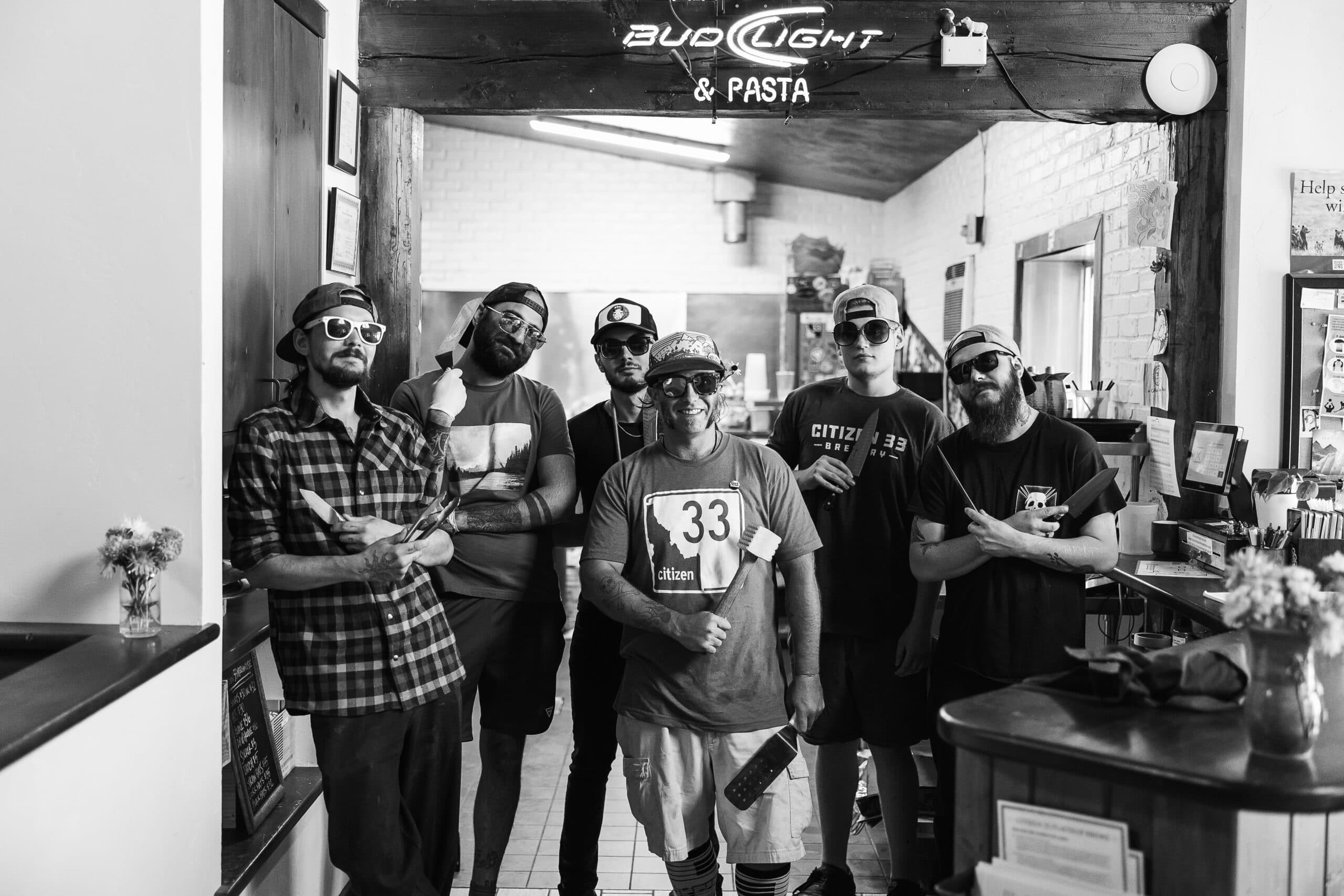
“Small, local farmers love the work they do, but most are getting by on thin margins,” says Erika Eschholz, co-owner and farmer at Teton Full Circle Farm. “It’s a delicate balance.” Erika explains the majority of the profit small farmers make is often used to hire more employees or create improvements on the farm.
“A profitable season is the difference between investing in more staff or a better processing area, building animal shelters, increasing greenhouse crops, enlarging root cellar storage, purchasing better tools …. or not,” she says. “That said, it can be discouraging to come home from a farmers market with loads of leftovers.”
Enter, John Perry, aka, Johnny Darkhorse. A seasoned chef, Johnny started Chops Eats in Driggs in 2016. Chops was a frequented-by-locals street food stand that featured mouthwatering sandwiches, foraged-morel mac and cheese, and specials embellished seasonally with farm- and ranch-fresh finds.
Johnny made it his business to purchase farmers market leftovers from Teton Valley’s small farms, an effort that started back when he was the head chef at the Knotty Pine in Victor.
“I’d stop in the [Knotty Pine] kitchen on the way home from the market with crates of veggies,” says Erika. “Johnny would look through it, taste a leaf or two, flash a smile and say, ‘I’ll take it all.’ Phew! It was such a relief to not have to return to the farm with stacks of leftover veggies and nowhere to sell them.”
Today, as head chef at Citizen 33 in Driggs, Johnny continues the tradition of sourcing the produce featured in the restaurant’s dishes from leftover farmers market goods.
“I don’t go to the market,” says Johnny. “The market comes to me!”
Any given summer Friday around 2:15pm is a “full-on scene” at Citizen 33. Sometimes four to five farmers show up simultaneously with loads of goods looking for a home. And it’s not just market leftovers that Johnny purchases. He also takes summer crop surpluses and decorative flowers from growers like Teton Full Circle Farm, Canewater Farm, Easy Acres, Sweet Hollow Farm, Mountain Valley Mushrooms, and Morning Dew Mushrooms. Josh Arthur from Foraging Farmers occasionally stops by as well, with ripe pickings—like morels or chanterelles—from the forest.
“One afternoon there were five different local farmers selling Johnny their goods—all at the same time,” remembers Erika. “Johnny knows the difference he is making for all of us. He knows how hard it is to run a small business, and he knows what it’s like to grow food in the valley. It’s a symbiotic relationship.”
For Johnny, using the weekly farm surplus requires a level of spontaneity in the kitchen, a skill for which he particularly has the knack. He tag-teams the creative process with Citizen’s sous chef, Nate Beck. And if someone else on his staff has a creative idea? “If it works, we’ll rock it,” he says.
Lisa Hanley, co-owner of Citizen 33, says Johnny’s creativity is part of what makes Citizen 33 special.
“Johnny is extremely creative using all the ingredients available in the current season, it’s fun to see his creative twists on comfort food,” she says. “You don’t always expect to come into a brewery and a find beautiful local veggies turned into a sandwich, salad, or shaved veggie sauté.”
In prep for the weekend, Johnny shows up and makes sure his crew is set and ready for the evening. “Then I need to improv with what’s coming in,” he says. “Turnip kimchi, or purple potato mash? … Drunken Ragut? Then, it goes something like this: The kimchi tops the pork sandwich … The mushroom sauce goes on local lamb …”
Johnny often combines farm produce with local beef from Crowfoot J Ranch & Meats and lamb and goat from Thistle Brook Farm. Diners can expect to delve into tasty entrees like Longhorn tenderloin or lamb chops with a potato mash, or toppings like a sunflower herb pesto made with farm kale, spinach, and mint. And he doesn’t leave out the latest fruit crop, either, incorporating desserts like grilled peaches with ice cream, cinnamon, and sugar. A peach chutney will sometimes find itself atop a local pork roast, too.
Then there’s the accoutrements—the restaurant’s Bonfire and Ghost Blister hot sauces are all made seasonally with local chiles, pickled veggie sides feature local cucumbers and carrots, and the signature apple slaw for the restaurant’s famous fish and chips is made, seasonally, with Idaho apples and local cabbage.
On summer nights, Citizen’s dry erase board features the farms that contributed to the evening’s specials. Prior to that, the waitstaff huddles around at 4pm for a quick review about what’s on tap.
“From the beginning our vision has been about community, that’s how the name Citizen 33 came about,” Lisa says. “It’s for the people. We wanted our beers to be focused with Idaho ingredients and it makes sense to use as much local ingredients for our menu as well. It’s important to support the people and culture right here in our community.”
And it goes in the other direction, as well.
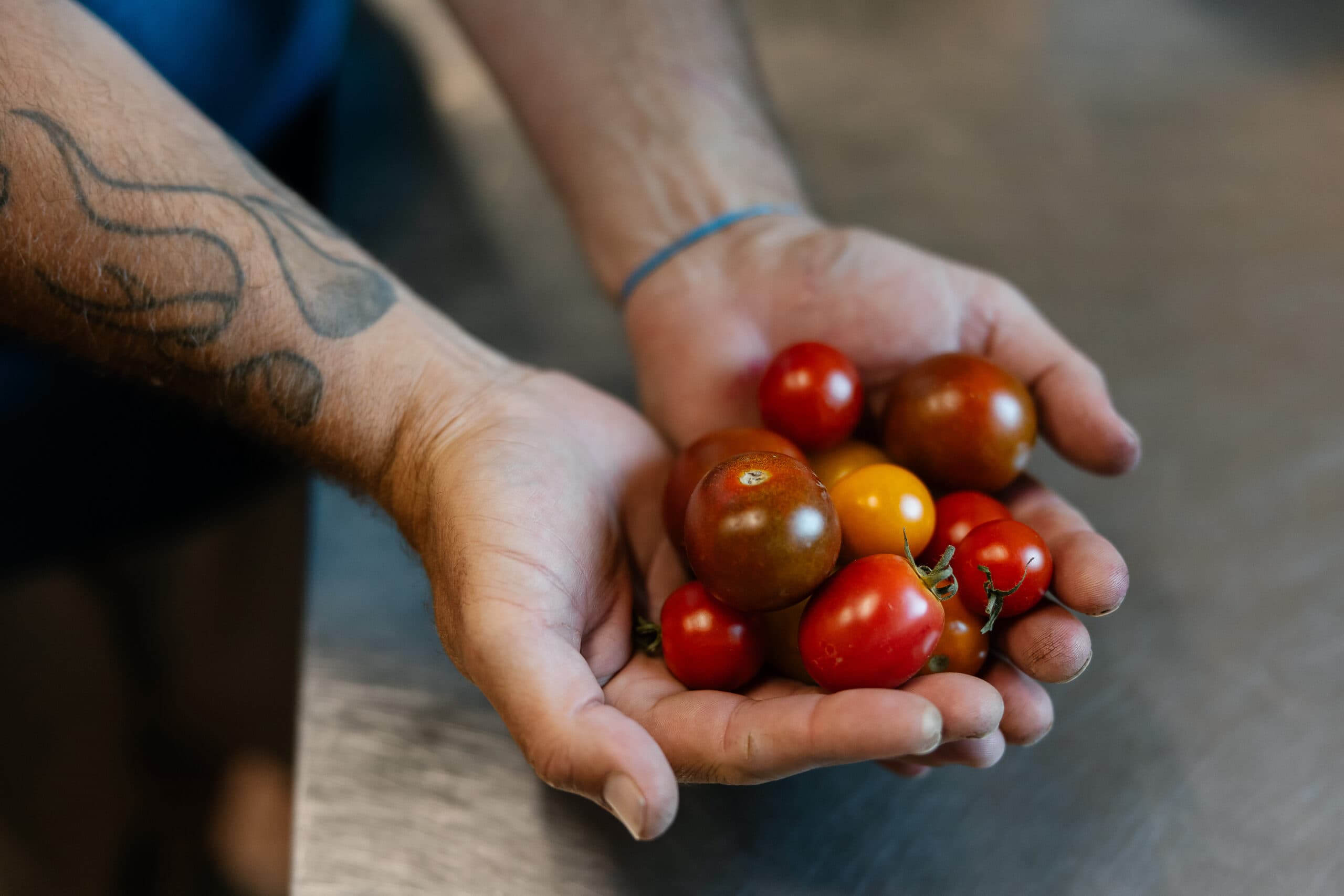
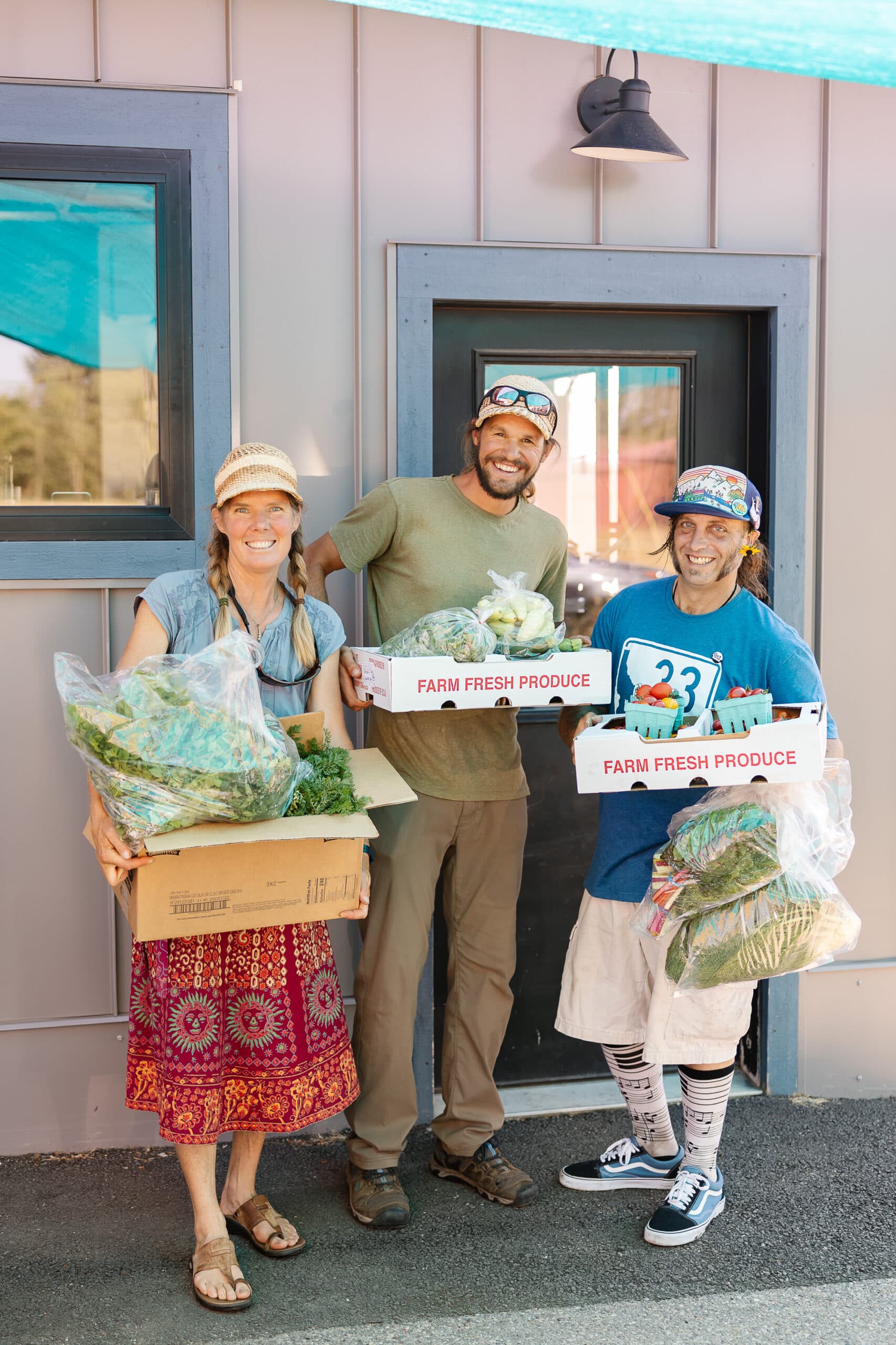


All summer long, farmers also pick up the restaurant’s food waste (like uneaten French fries and lettuce butts) to feed their goats, pigs, and chickens. The food that was carefully grown, lovingly prepared, and then left over completes its cycle in the system, making a meal purchase at Citizen 33 a sustainable gesture in community health.
Offering local food and participating in this movement is nonnegotiable for Johnny. It represents his commitment to his friends, the environment, and the ecosystem—something he’s proud of.
“There’s a lot of blood on your hands in the restaurant industry,” he says, “There’s waste and packaging. Whatever I can do to swing the weight makes a difference.”
Erika experiences a same sort of satisfaction.
“When I was a kid we had a big garden, some pigs, and chickens,” she says. “Sometimes we would sit down to dinner and my mother would say, with great pride, ‘Everything we’re eating tonight came from the backyard!’ Similarly—on more than one occasion—we have heard Johnny proudly announce, ‘All the veggies this week are coming from local farmers!’
“That’s the kind of restaurant I want to go to! Not only because he is helping the local farmers make ends meet, but because the farmers he is buying from are also growing really tasty, clean food!”
In the farm world, Erika considers Johnny an anomaly, blending the best aspects of selling wholesale (growing large quantities and knowing someone will buy it) and retail (communicating with customers about their different tastes and preferences).
“Johnny doesn’t select tons of one or two crops from a list, nor does he request only the most sought-after crops,” Erika says. “His wheels are turning when he looks at what we have on a given week, knowing full well that some of the crops that don’t get attention at the market are often the most flavorful. Johnny is an extremely creative chef and turns whatever lands in his kitchen into delicious, often unexpected, dishes.”
Johnny’s Cucumber Kimchi
- 5 strip-peeled cucumbers, sliced
- 1 large carrot, peeled and shredded
- 1 large white onion, half-julienned
- 1 tablespoon garlic, minced
- 1 tablespoon ginger, mined
- 1 tablespoon Sambal (Indonesian chili paste)
- ¾ cup sugar
- 1 ½ teaspoons salt
- 1 teaspoon Korean chili flakes
- 1 cup rice vinegar
- 1Tablespoon fish sauce
- 2 cups Citizen’s Obsession IPA
- 1 ½ cups hot water (to melt sugar)
- Combine all ingredients in a large glass container (1/2-gallon Mason jars work well).
- Mix thoroughly.
- Rubber band a piece of cheesecloth to the mouth of the jar.
- Leave out overnight.
- Place in the refrigerator, with a lid on, and continue to enjoy for 2 to 3 weeks.

